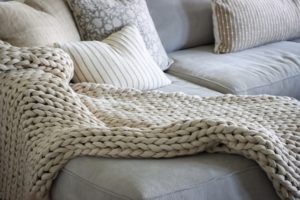It’s a big world out there
Going out in public can be a challenging sensory experience for lots of reasons. There’s simply a lot of stimulation, you can’t control most of it, and there can be concerns about other peoples’ acceptance (or lack thereof) of your sensory needs, your reactions, and any accommodations you choose to use.
Growing a firm belief in your own ability to take care of yourself, and that you deserve to be able to, is crucial to actually using whatever sensory aids you might find helpful.
The social stuff
Along with the practical helps I’ll introduce below, you might also be concerned about stares or reactions from other people.
No matter how you choose to accommodate your sensory needs in public (or at home), growing a firm belief in your own ability to take care of yourself, and that you deserve to be able to, regardless of what others may think, is crucial to actually using whatever aids you might find helpful.
The sensory stuff
Depending on what sensory challenges you’re dealing with, the specific things that will help will be very different. However the bottom line is always to help regulate the nervous system as a whole, so it is easier to deal with the difficult parts.
The bottom line is always to help regulate the nervous system as a whole, so it is easier to deal with the difficult parts.
That might mean stimming, or engaging other senses in pleasant ways, as well as blocking whatever is overwhelming.
If you choose to be inconspicuous (as much as possible), sunglasses or brimmed hats can block the light.
Fidget toys are becoming more socially acceptable.
You can carry around a small plastic baggie with a pleasant essential oil on a cotton ball to help with smells.
As to noises, there are silicon earplugs that fit in your ear and block a lot of sound. I know of Loops and Earasers. Earpods also can cancel out some of the noise actively by playing white or pink noise or music.
I can’t list all the options here, because I don’t know your particular situation, and sensory needs can vary considerably. But I hope this starts you off with a few ideas.




